Held on the third Thursday of November, World Philosophy Day is here, this year with a focus on the role of youth in pursuit of an inclusive and sustainable future. Here are 11 books spanning different eras and focuses for anyone interested in acquiring the knowledge and critical thinking skills needed to achieve such a future.
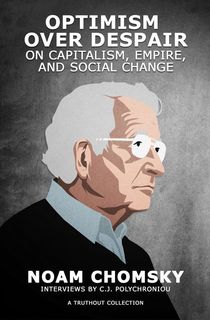
Optimism over Despair
Noam Chomsky is a defining voice in linguistics, cognitive science, computer science, philosophy, psychology, and political activism: it’s no wonder that The New York Times labeled Chomsky as “arguably the most important intellectual alive.” Having written over 150 books, it can be daunting to begin diving into the thoughts of such a diverse mind, but Optimism Over Despair is a perfect entry point, collecting a series of interviews from 2013-2017 on topics ranging from neoliberalism, socialism, and the legacy of the Obama administration.
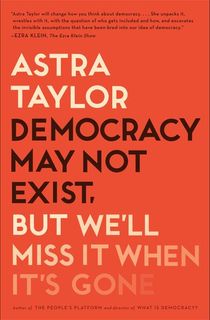
Democracy May Not Exist, But We'll Miss It When It's Gone
Documentarian and sociology professor Astra Taylor tackles the surprisingly difficult task of defining democracy and how our systems fail to reach the threshold of a true democracy. Gerrymandering, secret campaign contributions, and the wealth behind those on Capitol Hill are problems that extend beyond a single election, and Taylor argues that a fully inclusive democracy has never existed, but it is still something worth striving for.
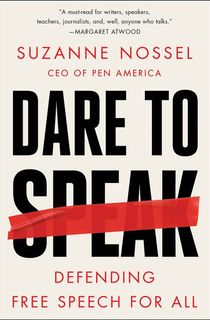
Dare to Speak
Free speech has never been a more hotly contested topic than in today’s political climate, and Dare to Speak attempts to cover what free speech truly is and how to cultivate debate that is both open and considerate of the many backgrounds and cultures in the United States. Nossel is the founder of PEN America, a non-profit aiming to raise awareness and protection of free expression, and she has created a playbook on how to defend the right to express unpopular views while being able to protest others without silencing them.
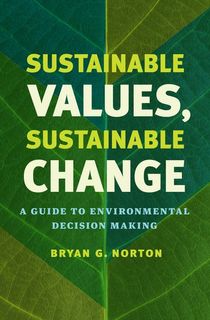
Sustainable Values, Sustainable Change
Sustainability has become a bit of a buzzword, so Norton provides an actionable response to environmentalists looking to make strides towards the elusive state of sustainability. Rather than the fixed objectives for the future usually put forth by governments and environmental agencies, Norton makes the argument for experimentation and adaptability, with a new decision-making process that covers science, philosophy, and activism to protect as many values as possible.

Moral Combat
“Just following orders” is not an excuse for crimes against humanity as was famously established by the Nuremberg Trials, but what about the more typical moral dilemmas faced by foot soldiers in World War II? Historian and WWII expert Michael Burleigh goes beyond the most infamous perpetrators of war crimes and atrocities during the war and looks at both the micro and macro, examining societies at large and the individuals caught in the middle of war, acknowledging that in a war as complicated and devastating as WWII, sometimes morality isn’t so black-and-white.
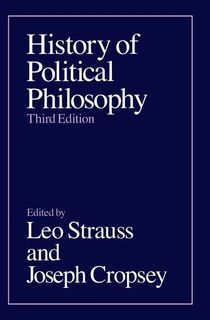
History of Political Philosophy
This textbook was designed for undergraduate students of political science, making it a perfect introduction to the most important figures of political philosophy. The book takes a comprehensive look at thousands of years of thought, from the Ancient Greek philosopher Plato to existentialist Martin Heidegger, from Machiavelli to Marx, Thomas Hobbes to René Descartes, and many others. History of Political Philosophy is in its third edition, adding new and revised essays to its already considerable selection.
Essays in Humanism
Who better to help look to the future than the greatest mind of the past? Essays in Humanism is a collection of Einstein’s writings during two of the most consequential decades in human history, ranging from 1931 to 1950. He wrote on a range of topics such as science, Zionism, nuclear warfare, politics, and economics as the world experienced the Great Depression, World War II, and the early stages of the Cold War.
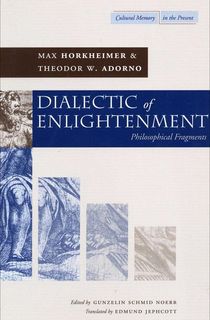
Dialectic of Enlightenment
Written and privately circulated during World War II, Dialectic of Enlightenment seeks to answer why humanity chose to go down the path of barbarism instead of entering “a truly human state”. While the timing of the book’s writing may make it seem a simple critique of the early 20th century, Horkeheimer and Adorno analyze thousands of years of behavioral structures that ultimately lead to the self-destruction of Western reason. They particularly focus on the relationship between myth and enlightenment, which is often paradoxical, and their musings created one of the most influential works of critical theory.
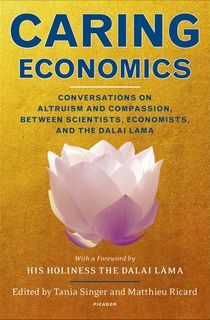
Caring Economics
Do compassion and the pursuit of wealth need to be separate? Is economics driven purely by self-interest? These questions and more are discussed between scientists, economists, and the Dalai Lama, with the goal of demonstrating a need for an altruistic economy. Each chapter follows a presentation from the Mind and Life Institute, which seeks to prove that wealth does not need to be rooted in self-interest, and that a global altruistic economy is possible.
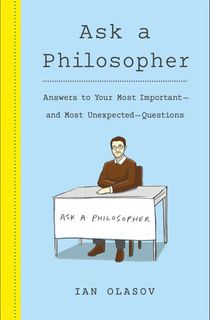
Ask a Philosopher
Compiled from real questions put forth in his “Ask A Philosopher” series, Ian Olasov speaks on a wide variety of topics: the morality of having children, or a pet fish; the subjectivity of color; the possibility of life after death; and perhaps most importantly, is ketchup a smoothie? No matter how silly or serious the question, Olasov’s answers are a great entry point to understanding philosophy, particularly how we can use philosophy for everyday questions, problems, and fears.
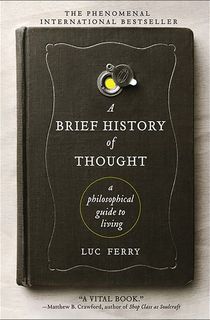
A Brief History of Thought
Luc Ferry’s efforts to consolidate the entire timeline of philosophy into a book is seen as one of the most successful and most accessible around. The French philosophy professor organizes this history into five distinct eras, from the Ancient Greeks to the Postmodernists, and shows how each era is not only still relevant to the present day, but also essential to a happy, fulfilling life. All of this is presented with a sincere, hopeful, and accessible tone, which made the “Philosophical Guide to Living” an instant hit.
This post is sponsored by Open Road Media. Thank you for supporting our partners, who make it possible for The Archive to continue publishing the history stories you love.


